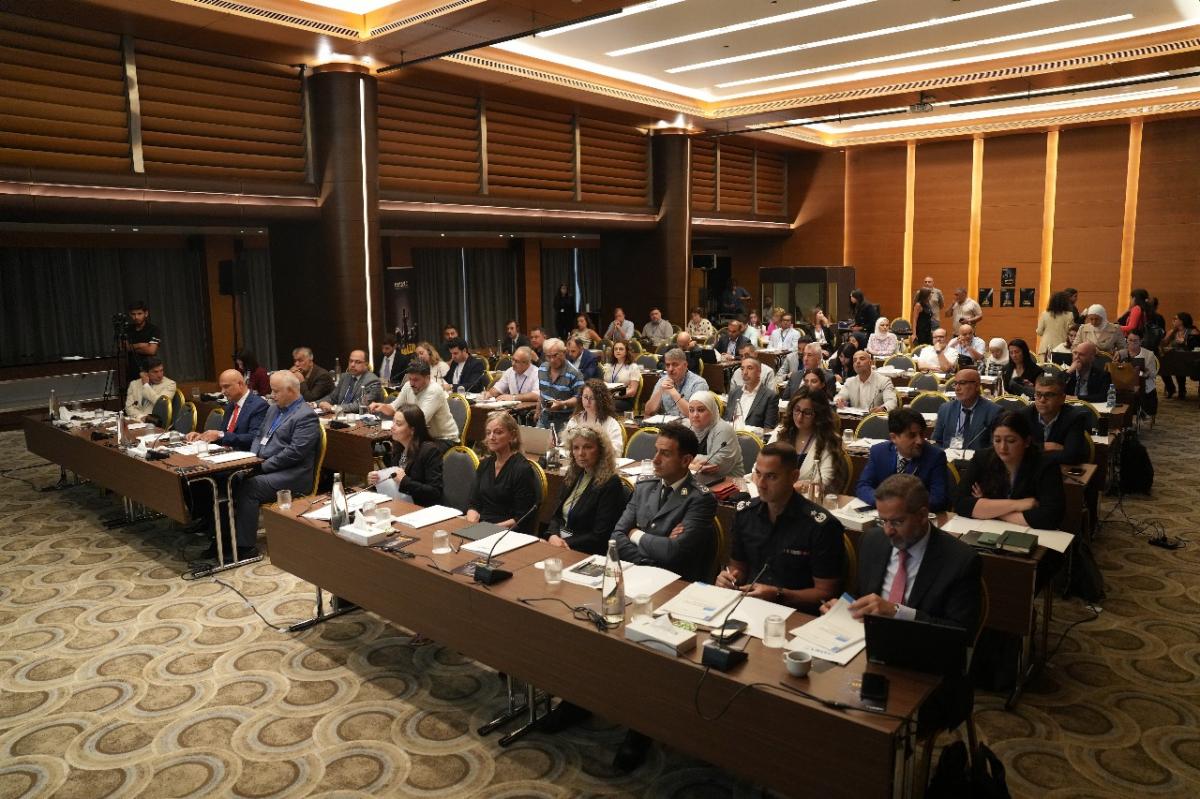Beirut was the regional platform this week for reimagining transitional justice with the survivors of torture, not as passive recipients of support, but as central actors in the pursuit of justice. The conference, titled “Towards Inclusive Transitional Justice Centered on Victims,” was held in the Lebanese capital in response to a growing regional need: to rehabilitate victims, hold perpetrators accountable, and build integrated support systems that restore dignity and rebuild the human spirit.
Opening Words Refocus the Compass Toward Victims
Opening remarks did more than offer pleasantries—they posed critical questions about the place of victims in justice systems. Najat Rochdi, Deputy UN Special Envoy for Syria, emphasized that justice is incomplete without restoring the dignity of survivors. “Rehabilitation is not just a humanitarian option,” she said, “it is a political and moral obligation.”
Mazen Shaqoura, the OHCHR’s regional representative, argued that delivering justice to victims requires addressing the structural roots of torture. “There is no transitional justice without true guarantees of non-recurrence.”
Dr. Amina Bouayach, President of the Global Alliance of National Human Rights Institutions, stressed that “victims’ voices must be central to truth and accountability. Justice begins with testimony, not courtrooms.”
Suzanne Jabbour, Executive Director of Restart Center and member of the UN Subcommittee on Prevention of Torture, echoed the point: “Psychological care is not an afterthought. It is part of justice. We must dismantle the walls between law and the human being.”
Victor Madrigal, member of the UN Fund for Victims of Torture Board, added, “We don’t want beautiful laws on paper—we want effective tools for healing and justice. International commitments must become concrete realities in victims’ lives.”
Rehabilitation as a Right, Not a Charity
The first session focused on redress and rehabilitation as legal entitlements under international law—particularly General Comment No. 3. Legal and medical experts emphasized that survivors are not mere beneficiaries of treatment but holders of enforceable rights that require institutional support.
Experts Dr. Nidal Jurdi and Marie Brasholt presented a detailed analysis of the implementation gaps in conflict zones. Meanwhile, Restart Center’s team, represented by Dr. Abbas Alameddine and Dr. Sanaa Hamzeh, shared a field-based model that connects psychological care with social support and justice mechanisms, tailored to the Lebanese context.
Transitional Justice: From State Narratives to Personal Testimonies
The second session shifted the focus to a deeper question: Is prosecuting perpetrators enough? Or should victim narratives become foundational to national reconciliation?
Bouayach highlighted how incorporating victim testimonies in Tunisia and Morocco helped rewrite collective memory more equitably. Jabbour stressed the need to develop psychological support services that are integral to justice, not peripheral.
Justice in Syria: The Most Complex Landscape
Syria was the subject of a dedicated session that examined the political, legal, and societal challenges of achieving redress amid ongoing conflict and violations. Speakers underscored the importance of non-politicized documentation and ensuring Syrian victims are not marginalized.
The message was clear: psychosocial support must be designed locally and led by Syrians themselves to avoid reinforcing dependency or external control.
From Principles to Practice: A Regional Roadmap
The second day focused on practical action: assessing victims’ needs, testing rehabilitation models, and drafting a viable regional action plan. The resulting roadmap identified five core priorities:
- Establishing regional support networks for knowledge and experience exchange
- Strengthening local capacity through training and sustainable funding
- Supporting Syrian initiatives with technical, legal, and psychological assistance
- Amplifying victims’ voices through media campaigns and verified testimonies
- Creating monitoring and evaluation mechanisms to ensure effective policy outcomes
Justice Begins with Listening
This was no theoretical showcase. The conference served as a bold call to shift transitional justice from bureaucratic reports to lived experiences. All participants agreed: rehabilitation is not measured by the number of projects, but by how fully victims reclaim their sense of dignity and justice.
Torture survivors are not statistics or symbols—they are human beings we must work with, not merely for.
Please post your comments on:
[email protected]
 Politics
Politics













